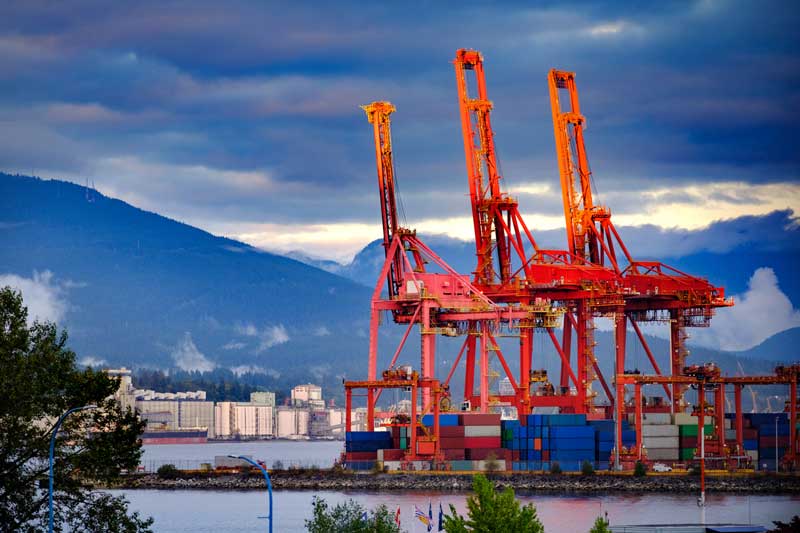PORT OF VANCOUVER BACKS $1 MILLION GREEN TECH TESTING
The Port of Vancouver is testing an array of low– and zero-emission fuels and technologies to achieve zero emissions by 2050.

The Vancouver Fraser Port Authority is working together with partners from across the port community to phase out all port-related emissions.
Through the Low-Emission Technology Initiative, a joint scheme between the port authority and the Province of British Columbia, the port authority and the province have each committed CA$1.5 million ($1.1 million) in funding to support the port community’s transition to low-emission energy.
The initiative includes testing of battery-electric-powered terminal tractors; 100 per cent biodiesel on commercial ferries; a hydrogen-powered crane; and 100 per cent renewable diesel on a terminal locomotive and one of the port authority’s patrol boats.
“Charting our course towards a zero-emission port starts with collaborative efforts like these – between the port authority, the port community, and government – to test innovative new low-emission fuels and technologies that reduce emissions while keeping trade moving through the Port of Vancouver,” said Robin Silvester, President and Chief Executive Officer of the Vancouver Fraser Port Authority.
“We plan to continue taking tangible steps, in close collaboration with our partners across the port, towards our goal of phasing out all port-related emissions by 2050.”
Efforts to test low-emission fuels include a six-month trial of 100 per cent renewable diesel on one of the port authority’s patrol boats, the Takaya – the first federal agency in Canada to do so according to the port authority.
Partners to this initiative include Viterra, DP World, and Seaspan Ferries.
DP World, which operates four container terminals across British Columbia, recently installed five zero-emission electric rail-mounted gantry cranes at its Centerm container terminal on the south shore of Burrard Inlet and additional shore power technology.
The carrier is also in the final planning stages of retrofitting a hydrogen fuel cell-powered rubber-tyred gantry (RTG) crane.
Following severe weather events in November 2021, the Port of Vancouver experienced significant congestion in ocean and rail. PTI spoke to the Vancouver Fraser Port Authority about possible solutions and the way ahead.

